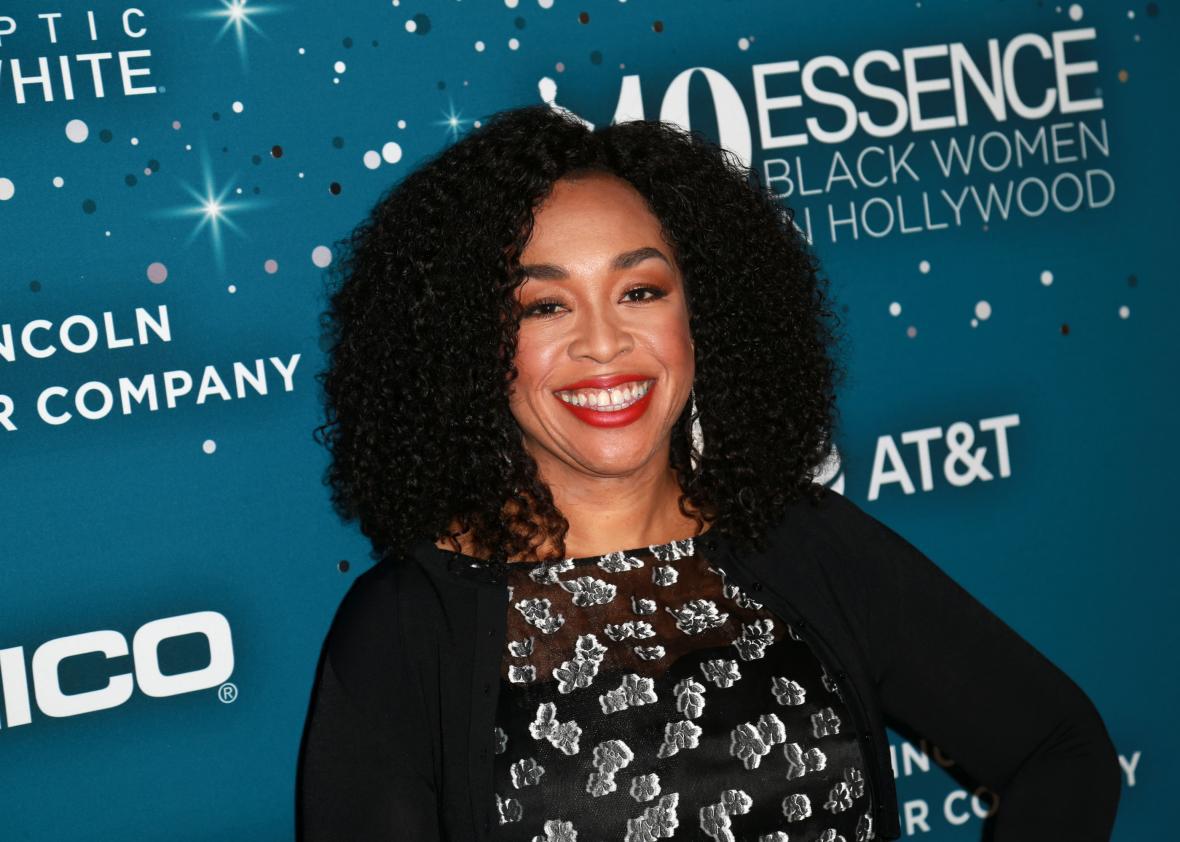She’s already carved out an entire night of primetime ABC real estate—“Thank God It’s Thursday,” or TGIT, it’s dubbed—and will soon be dominating a corner of Netflix thanks to a recent deal with the streaming giant. So it was only a matter of time before Shonda Rhimes found her way prominently into the digital media space. Shondaland.com, a lifestyle bog, launched earlier this week following the debut of her newsletter of the same name over the summer, and it instantly stakes its claim to the eyes and open minds of determined, career-minded women of today. In a poetic manifesto that reads as if it were meant to be spoken in that signature “Shonda staccato” by one of her breathless, fast-talking actors, the “About” section of the site proclaims:
If we can leave you with one lesson, let it be this:
If you don’t like your story, rewrite it.
If you don’t rewrite it, someone else will rewrite it for you.
Never let that happen.
Because then you’ve been silenced
We are Shondaland.
Storytelling is our business.
Showing you the extraordinary possibilities of your story is why we exist.
It’s as if Cristina Yang or Olivia Pope or Annalise Keating were giving you the greatest motivational speech of your life before you go into that once-in-a-lifetime surgery or give that presidential campaign speech or bury the body of the pervy professor you just accidentally killed. But does it live up to its declarative fervor?
Last fall, I quietly detached myself from the realm of ABC’s Shondaland for the first time in a decade. After making my way through the at times thrilling, gut-wrenching, bumpy, and unwieldy seasons of Grey’s Anatomy—yes, I kept watching long after the infamous ferry boat incident and the realization that nearly every doctor who leaves Grey Sloan Memorial for good does so in a body bag—Scandal, and How to Get Away With Murder, I found I just couldn’t anymore. By fall of 2016 there were so many other great shows that reflected the kind of inclusion I’ve always longed to see on screen and were doing so in new and interesting ways, that I found I just didn’t have time to keep up with TGIT—ironic, considering that Rhimes’ shows and business savvy paved the way for all of them to exist. Yet I will always be a champion and admirer of what she stands for; she’s even made me appreciate the art of the excellently crafted memoir! And because of that, Shondaland.com as it exists so far, works for me. Yes, you can be a Shonda stan who to this day never misses an episode of anything in which she’s even remotely involved and appreciate this site. But you can also be a casual Shonda cheerleader from afar and do so, too.
It helps that she’s got an impressive array of writers and topics in her midst. Kara Brown, formerly of Jezebel and recently a writer on the upcoming Black-ish spin-off series, writes candidly about the discomfort that can come with seeking out Korean-made beauty products as a black woman, while Slate’s own Mallory Ortberg, aka Dear Prudie, gives a colorful recommendation for a brand of chest binder. In another post, editor Gina Mei explores outgrowing her mother’s clothing, and for the Scandal fans, star Katie Loses, aka Quinn, wrestles with becoming comfortable with her own success. Of course, Rhimes herself is all over the site, interviewing progressive liberals’ current favorite auntie Maxine Waters and expressing irritation over the way in which people responded to her weight loss.
Not everything works—some of the op-eds feel too familiar without saying much new. And while I’m a sucker for a juicy advice column (my current favorite in the genre is the deliciously harsh and no-nonsense counsel of Agatha Guilluame on the blog VSB), what appears to be Shondaland’s attempt at launching such a series, called “Agony Auntie,” kicks off with a question that feels straight out of Cosmo circa 2001. (“What’s the proper social etiquette for running into a one-night stand in the grocery store?” Really? You couldn’t just ask your BFF this? Yawn.) But while perusing through the site I realized just how important it could eventually turn out to be. Shondaland feels like a breezy, but very intentional, attempt at inclusion—of different races, sexualities, ages, backgrounds. In several ways, it achieves the kind of feminist intersectionality that is so often lacking from these kinds of platforms when they first set out.
And it does so right out the gate. This isn’t surprising considering it’s coming from the same woman whose first show debuted with a cast made up of three(!) black actors and one Asian actor at a time when you’d be hard pressed to find even one of each on most other TV show. Shondaland doesn’t have to succeed, because Rhimes is doing just fine on TV and will continue to do so. But it seems clear that she wants it to—that for her, it must thrive—and that means, hopefully, that it will only continue to get even better.
